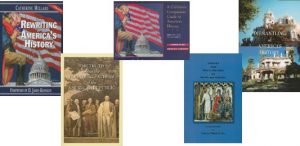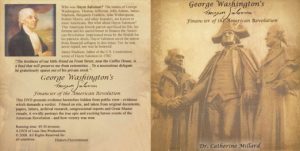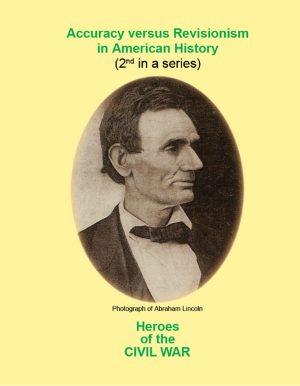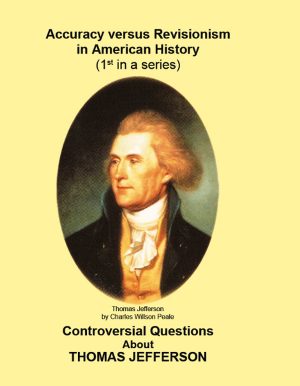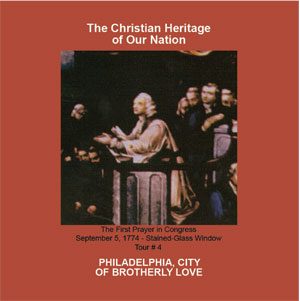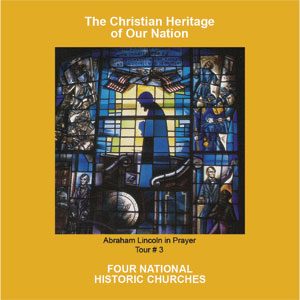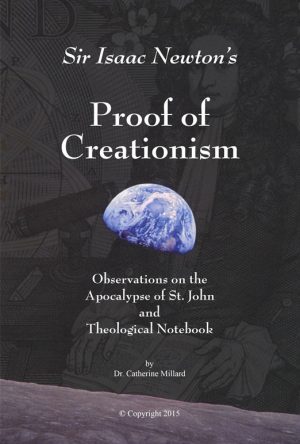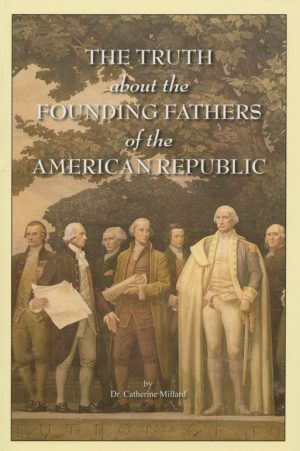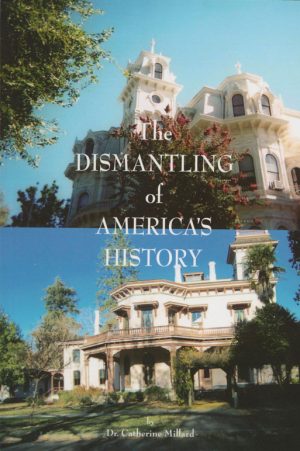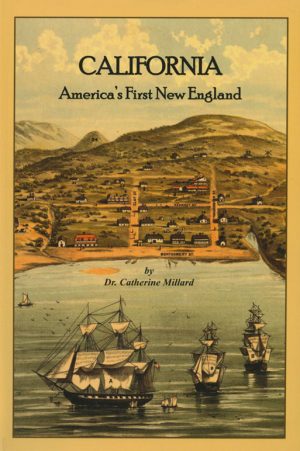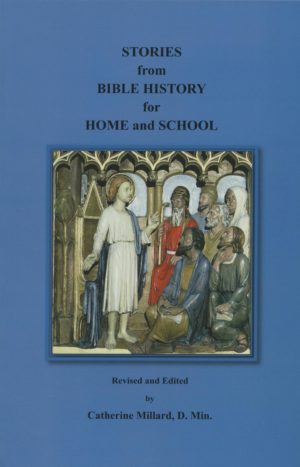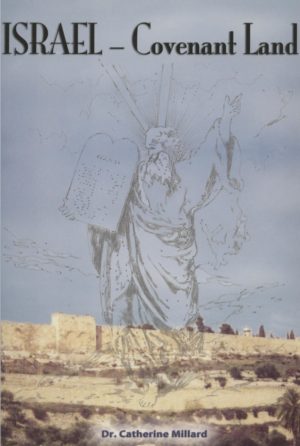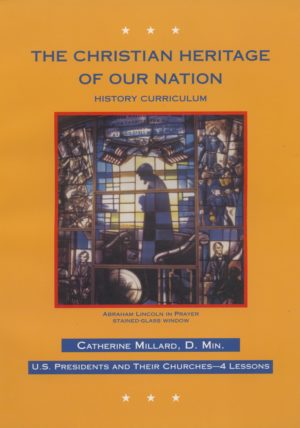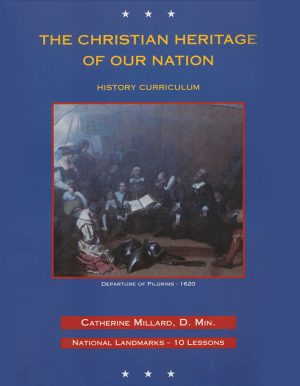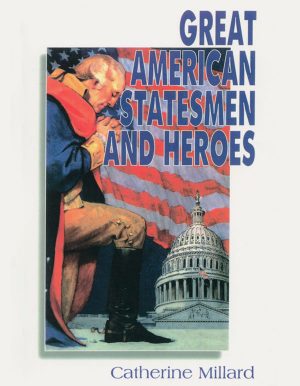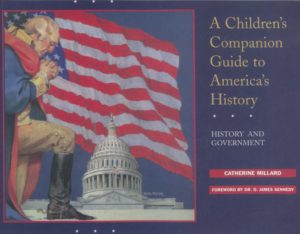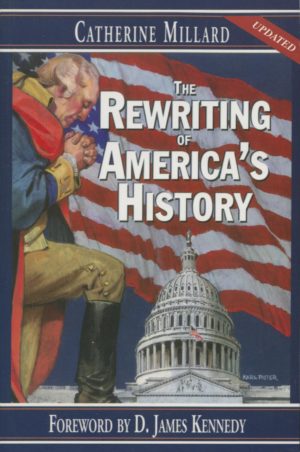Andrew Jackson, the seventh president of the United States, was born March 15, 1767 in the Waxhaw settlement, a remote area of South Carolina.1 His father was an Irish emigrant of Scottish origin who had come to America in search of a better life. 2
Andrew Jackson Motivated by Independence
In an oration delivered on June 27, 1845 in commemoration of his death, his entire life and accomplishments were reviewed. The following excerpts from that address are given:
…His birth was in 1767, at a time when the people of our land were but scattered along an immense coast, with no army, or navy, or union; and exposed to the attempts of England to control America by the aid of military force. His boyhood grew up in the midst of the contest with Great Britain. The first great political truth that reached his heart, was that all men are free and equal; the first great fact that beamed on his understanding was his country’s independence. The strife, as it increased, came near the shades of his own upland residence. As a boy of thirteen, he witnessed the scenes of horror that accompany civil war; and when but a year older, with an elder brother, he shouldered his musket, and went forth to strike a blow for his country… 3
Andrew finds Himself Alone in the World
Following the war, he found himself alone in the world, his father having died, his brother killed in the war and his mother also having passed away.
Jackson Admitted to the Bar – a State Constitution Formed
Settling the wilderness areas to the West became a new challenge for the nation after the war. In November, 1787, he was admitted to the bar.4 At age twenty-one, Jackson was made a public prosecutor for a wild and remote frontier area in the Cumberland region. The Commemoration speech described those efforts to form a State Constitution:
…These adventurers in the wilderness longed to come together in organized society. The overshadowing genius of their time inspired them with good designs, and filled them with the counsels of wisdom. Dwellers in the forest, freest of the free, bound in the spirit, they came up by their representatives, on foot, on horseback, through the forest, along the streams, by the buffalo traces, by the Indian paths, by the blazed forest avenues, to meet in convention among the mountains at Knoxville, and frame for themselves a Constitution. Andrew Jackson was there, the greatest man of them all – modest, bold, determined, demanding nothing for himself, and shrinking from nothing that his heart approved.
The Convention came together on the 11th day of January, 1796, and finished its work on the sixth day of February. How had the wisdom of the Old World vainly tasked itself to frame constitutions, that could, at least, be the subject of experiment; the man of Tennessee, in less than twenty-five days, perfected a fabric, which in its essential forms, was to last forever. They came together, full of faith and reverence, of love to humanity, of confidence in truth. In the simplicity of wisdom, they framed their Constitution, acting under higher influences than they were conscious of.
They wrought in sad sincerity
Themselves from God they could not free
They builded better than they knew
The conscious stones to beauty grew.
In the instrument which they framed, they embodied their faith in God, and in the immortal nature of man. They gave the right of suffrage to every freeman; they vindicated the sanctity of reason, by giving freedom of speech and of the press; they reverenced the voice of God, as it speaks in the soul of man, by asserting the indefeasible right of man to worship the Infinite according to his conscience; they established the freedom and equality of elections; and they demanded from every future legislator a solemn oath never to consent to any act or thing whatever that shall have even a tendency to lessen the rights of the people… The men of Tennessee were now a people, and they were to send forth a man to stand for them in the Congress of the United States… And with one consent, they united in selecting the foremost man among their law-givers – Andrew Jackson.
The love of the people of Tennessee followed him to the American Congress; and he had served but a single term, when the State of Tennessee made him one of its representatives in the American Senate, where he sat under the auspices of Jefferson… 5
Major-General Jackson Takes Command
Jackson distinguished himself in the military, leading the Tennessee Militia to victory over hostile Indians in Alabama; as Major-General of the U.S. Army, soundly defeating the British in the Battle of New Orleans in 1815; and winning in the Seminole Indian uprising in Florida. 6
The Commemoration Oration gives further insight into his life as follows:
…His hospitable roof sheltered the emigrant and the pioneer, and, as they made their way to their new homes, they filled the mountain sides and the valleys with his praise…None equaled him in the power of endurance; and the private soldiers, as they found him passing them on the march, exclaimed, “he is as tough as hickory.” “Yes,” they cried to one another. “There goes Old Hickory!…”7
Andrew Jackson, Seventh U.S. President
Jackson served two terms as president of the United States from 1829-1837. It was shortly before the beginning of his second term as president, that Jackson issued his famous “Nullification Proclamation,” directed at the people of South Carolina, which a state paper described as “clear in statement, forcible in argument, vigorous in style and glowing with the fire of a genuine and enlightened patriotism.” 8 The following year, he took the bold step of withdrawing the government’s deposits from the Bank of the United States, causing consternation in the financial world, and bringing upon himself criticism from the Senate. However, by 1835, the national debt was paid off, an occurrence unique in the history of the nation.9 At the conclusion of his second term as president, Jackson left a surplus in the Federal Treasury. 10
Jackson Studied the Bible Faithfully
gain, the Commemoration Oration reported on the events, as his life drew to a close:
…Age had whitened his locks, and dimmed his eye, and spread around him the infirmities and venerable emblems of many years of toilsome service; but his heart beat as warmly as in his youth, and his courage was as firm as it had ever been in the day of battle. But while his affections were still for his friends and his country, his thoughts were already in a better world. That exalted mind, which in active life had always had unity of perception and will, which in action had never faltered from doubt, and which in council had always reverted to first principles and general laws, now gave itself up to communication with the Infinite. He was a believer: from feeling, from experience, from conviction. Not a shadow of skepticism ever dimmed the luster of his mind. Proud philosopher! Will you smile to know that Andrew Jackson perused reverently his Psalter and Prayer-book and Bible? Know that Andrew Jackson had faith in the eternity of Truth, in the imperishable power of popular freedom, in the destinies of humanity, in the virtues and capacity of the people in his country’s institutions, in the being and overruling Providence of a merciful and ever-living God…11
Jackson said “My Sufferings are Less
Than those of Christ on the Cross”
From a famed Eulogy given in the U.S. Senate on June 8, 1845, we glean further poignant truths pertaining to Andrew Jackson’s true Christian identity. From his own words, we have irrefutable evidence of his salvation through dependence upon Christ Jesus and His shed blood on Calvary’s cross:
The last moment of his life on earth is at hand. It is the Sabbath of the Lord: When he first felt the hand of death upon him, ‘may my enemies,’ he cried, ‘find peace; may the liberties of my country endure forever.’ When his exhausted system, under the excess of pain, sunk, for a moment from debility, ‘Do not weep,’ said he to his adopted daughter; ‘my sufferings are less than whose of Christ upon the cross,’ for he, too, as a disciple of the cross, could have devoted himself, in sorrow, for mankind…His two little grandchildren were absent at Sunday School. He asked for them, and as they came, he prayed for them, and kissed them and blessed them…And that dying man, thus surrendered, in a gush of fervid eloquence, spoke with inspiration of God, of the Redeemer, of salvation, through the atonement, of immortality, of heaven. For he ever thought that pure and undefined religion was the foundation of private happiness, and the bulwark of republican institutions.
Having spoken of immortality in perfect consciousness of his own approaching end, he bade them all farewell. ‘Dear children,’ such were his final words, ‘dear children, servants and friends. I trust to meet you all in heaven, both white and black – all, both white and black.’ And having borne his testimony to immortality, he bowed his mighty head, and without a groan, the spirit of the greatest man of his age, escaped to the bosom of His God. In life, his career had been like the blaze of the sun in the fierceness of its noon-day glory; his death was lonely as the mildest sunset of the summer’s evening, when the sun goes down in tranquil beauty without a cloud… 12
Jackson’s Testimony to his faith in
his “Glorious Redeemer”
In a letter written to Commodore Jesse D. Elliott, USN on March 27, 1845, seventy-three short days prior to his death, Andrew Jackson gives great insight into his vibrant Christian faith and his trust in Jesus Christ, his “glorious Redeemer,” whose sacrifice on the cross of Calvary purchased eternal life for him. Elliott had returned from the Middle East with a Roman sarcophagus which he wished to present to Jackson.
…I cannot consent that my mortal body shall be lain in a repository prepared for an Emperor or King – my republican feelings and principles forbid it – the simplicity of our system of government forbids it. Every monument erected to perpetuate the memory of our heroes and statesmen ought to bear evidence of the economy and simplicity of our republican institutions and the plainness of our republican citizens, who are the sovereigns of our glorious Union, and whose virtue is to perpetuate it. True virtue cannot exist where pomp and parade are the governing passions. It can only dwell with the people, the great laboring and producing classes, that form the bone and sinew of our confederacy. I have prepared a humble depository for my mortal body beside that wherein lies my beloved wife, where, without any pomp or parade, I have requested, when my God calls me to sleep with my fathers, to be laid, for both of us there to remain until the last trumpet sounds to call the dead to judgment, when we, I hope, shall rise together, clothed with that heavenly body promised to all who believe in our glorious Redeemer, who died for us that we might live, and by whose atonement I hope for a blessed immortality… 13
To learn more, click here.
____________________
Bibliography:
1
The Encyclopedia Americana (Vol. 15) New York: Americana Corporation.1940, p. 574.
2
Ibid.
3
Bancroft, George. Oration delivered at the Commemoration, in Washington, of the death of Andrew Jackson, June 27, 1845.Rare Book Collection, Library of Congress, Washington, D.C.
4
The Encyclopedia Americana, p. 574.
5
Bancroft, George. An Oration delivered at the Commemoration, in Washington, of the death of Andrew Jackson.
6
The Encyclopedia Americana, p. 575.
7
Bancroft, George. An Oration delivered at the Commemoration, in, of the death of Andrew Jackson.
8
Scott, Walter Dill. (ed.) The American People’s Encyclopedia. (Vol.11) Chicago: Spencer Press, Inc., 1957, p. 11-481.
9
Ibid.
10
Bancroft, George. An Oration delivered at the Commemoration, in Washington, of the death of Andrew Jackson.
11
Ibid.
12
Eulogy on Andrew Jackson given in the U.S. Senate, June 8, 1845. Rare Book Collection, Library of Congress.
13
Letter written by Andrew Jackson to Commodore Jesse D. Elliott, USN March 27, 1845. Displayed in front of the sarcophagus at the Smithsonian Institution, in 1966.
